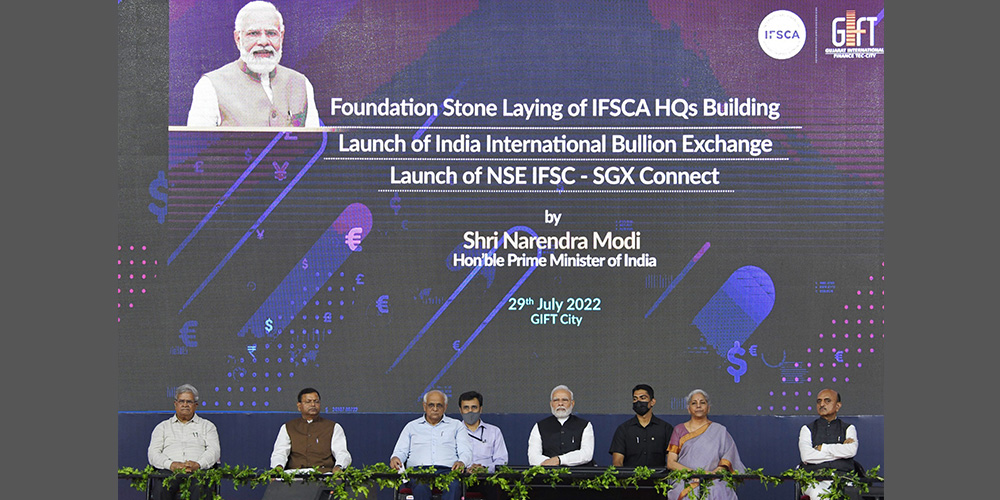India’s Prime Minister Shri Narendra Modi laid the foundation stone of the headquarters building of the International Financial Services Centres Authority (IFSCA) in GIFT City, Gandhinagar on 29th July. He also launched the India International Bullion Exchange (IIBX), India’s first International Bullion Exchange in GIFT-IFSC. Chief Minister of Gujarat Bhupendrabhai Patel, Union Minister Smt Nirmala Sitharaman, Union and State Ministers, diplomats, business leaders were among those present on the occasion.
Addressing the gathering, the Prime Minister said this day is very significant for the growing economic and technological strength of India and also for the growing global confidence in the prowess of India. “Today, in GIFT City, the foundation stone of the International Financial Services Centers Authority – IFSCA headquarters building, has been laid. I believe, as grand as this building is in its architecture, it will also create unlimited opportunities to make India an economic superpower”, he said.
Shri Modi said that IFSC will promote innovation and will be an enabler as well as a catalyst for growth. Institutions and platforms launched today will help 130 crore Indians to get connected with the modern global economy. “India is now entering the league of Countries like the USA, UK and Singapore who are giving direction to global finance” he added.
The Prime Minister said today India is one of the largest economies of the world. So in future, when our economy will be bigger, we have to be ready for it now. For this we need institutions that can cater to our present and future role in the global economy. India International Bullion Exchange – IIBX, he said, is a crucial step in that direction. He mentioned the role of gold in ensuring economic empowerment of the Indian women. He said that India’s identity should not remain limited to just a big market but it should be a ‘market maker’. He added “On the one hand, we are bringing in global capital for local welfare. On the other hand, we are also harnessing local productivity for global welfare.”

